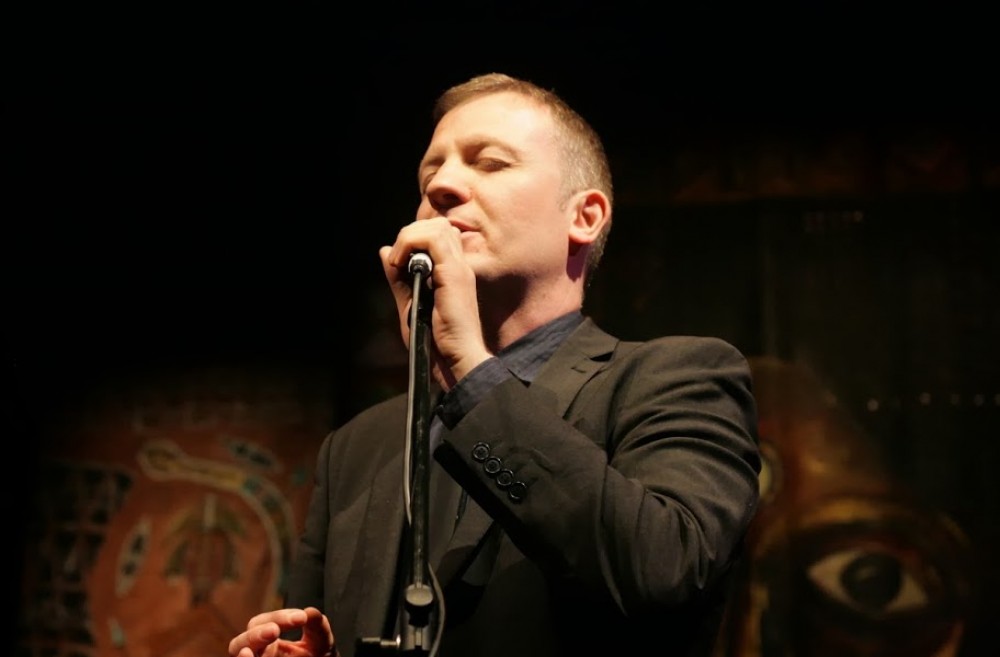I’m delighted to add four new poets to the Irish domain of Poetry International. First up is the American-born Kimberly Campanello, a poet who tackles the iniquities of Irish life (among many other things) with philosophical depth, conceptual brio and linguistic vivaciousness. Christodoulos Makris has this to say:
Acts of taking without consent from all but the most powerful of us fuel her work. The highly political nature of our times forms both the backdrop and the subject of her poems. Various entitlements and their impact on those without power, those who through accidents of birth find themselves under the sway of others in very literal ways, are fiercely interrogated. The ascribed status of women as second citizens – particularly in her adopted home of Ireland – is consistently put under the microscope. As an epigraph to ‘Birthing Stone’, Campanello reprints a paragraph from a report in The Irish Times summarising the events that led to Savita Halappanavar’s death in 2012, following University Hospital Galway’s refusal to grant her pregnancy a termination, despite being in the process of miscarriage, that eventually led to septicaemia, because ‘this is a Catholic country’.
Next up is Justin Quinn, a poet long-resident in Prague, who for nearly two decades now has exerted a quiet but discernible influence on the poets of my own cohort or generation. Ailbhe Darcy writes how
In Quinn’s work the postmodern, globalized age can be
glorious. At different moments in Fuselage, we ascend into the very sky in an airplane, look down on the whole world using Google Maps, or climb to a vantage point over tourist hordes in a spectacular London. These are all examples of an extraordinary access to the sublime bestowed upon the ordinary individual today – albeit one with money in his pocket. But even as it glories, Fuselage asks: what is involved in bringing a child into this belated age? As in W.B. Yeats’ ‘Prayer for my Daughter’, a poem which haunts Quinn’s work, the storm outside is cause for worry. Today’s storm – the globalizing force and dizzying technologies of late capitalism – can give an ordinary individual astonishing experiences of power, yet it also utterly overwhelms him or her.
Martin Mooney winningly describes his first encounters with Brendan Cleary, another Irish poet whose influence has been exerted from abroad, in this case the British cities of Newcastle, Leeds and Brighton:
Like many others, I first encountered the poetry of Brendan Cleary in the pages of the Echo Room, one of the most influential of the small press magazines that seemed to
thrive, all post-punk cheapskate energy, in the Thatcherite mid-1980’s. It felt almost miraculous to me that such a publication existed, let alone found its way to Belfast: in fact, its editor, Cleary himself, distributed copies to bookshops while on visits home to Northern Ireland – the motherland not quite celebrated in many of his early poems.
I submitted poems to the magazine, had them accepted, and met the editor on one of his samizdat-distribution trips in 86 or 87. It was a Good Friday, the pubs here didn’t open until the evening, we bought beer and drank it in the park. Many people drank in the park in those days.
Finally we have Eleanor Hooker, whose first collection, The Shadow Owner’s Companion, is surely destined to be remembered as one of the most signifcant Irish debuts of recent years. Jennifer Matthews describes how
For those familiar with the Irish literary scene, it is understood that describing a contemporary poet’s writing as divergent from ‘The Irish Poem’ is meant as praise.
Eleanor Hooker turns this complaint on its head, making ‘The Irish Poem’ a creature entirely her own – an animal born in Yeats’ neighbourhood, which now roams the territories of Edgar Allen Poe, Phillip Pullman and Tim Burton. We are in rural Ireland in most of the poems, and there are indeed the familiar residents, but they behave in totally unfamiliar ways. There are oak trees that speak to you, cups of tea ‘strain[ed] . . . / through your deaf ear / . . . full of lies’ and new features to the landscape, like ‘Wind Turbines’ that resemble “Four silent angels / on the mountain.”



